
Question: This is going to sound really stupid but, from reading the Trivia section have found that there is a book of A Walk To Remember. Is the book called A Walk To Remember, and who is it by?
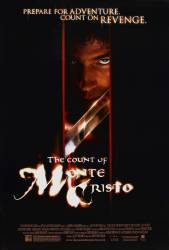
Question: When Zatara goes to Mr. Morell's house to find out information about Dantes and about the others that he wants revenge on, why do they keep showing Morell's granddaughter looking at Zatara? Does she realize that he really is Dantes or is it some other reason?
Answer: I believe it's just because there is a dirty smelly man that she doesn't recognise visiting her ailing grandfather, she just wants to keep an eye on things.
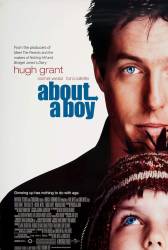
Question: It says during the final credits that several scenes from Billy Elliot were show throughout the movie. I don't remember seeing these scenes. When are they shown?
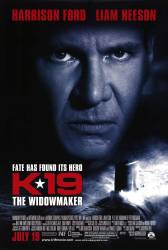
Question: Why attempt Russian accents in a film that is purely Russian? The star, Harrison Ford, doesn't even pretend to be Russian. Why should anyone else?
Answer: Harrison Ford does attempt a Russian accent in this film. It's a very slight, very bad attempt but he's definitely trying. Audiences come to expect accents in films such as these for a heightened sense of immersion. Hearing American accents from supposedly Russian characters can sometimes be jarring to an audience, even if the characters are speaking English. This of course isn't always the case and plenty of films have actors speaking in their natural accents while they are playing foreign characters. The director of this film chose to have his actors speak with Russian accents, with extremely poor results pretty much all around.
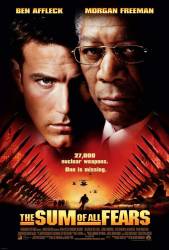
Question: As President Fowler is being escorted from the football stadium, he tells Cabot to "get the people out of here." How did the President know that the bomb was in the building? No one in the scene knew its exact location, so why does he think that if the fans leave the stadium they will be safe?
Answer: The President telling Cabot to "get the people out of here" is just a political life boat. If asked what he did when he found out about the bomb he can "honestly" say he asked for an evacuation.
It's unlikely at such a time of panic that one would consider a 'political life boat'. There's also nothing in the character as presented to suggest that would be his thought process. The president's just been told that there's a bomb in Baltimore (not the building) and says "get those people out of the stadium." He's being evacuated from a location that contains thousands of other people. It's fair to assume he knows all those people are also in danger so wants them evacuated too.
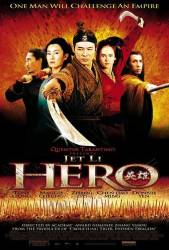
Question: Was this film based on an true story, or was it fiction based on the true warring states as the backdrop?
Answer: It was a fiction based on the true historical period as backdrop, althought it sorted of resembled a true event that the deserter general of Qin gave his head to an assassin as a pass to get close to the Emperor, who was then still a king of a state among the warring states.
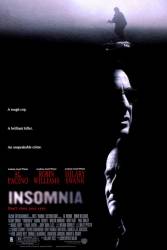
Question: Why does Dormer switch to a backup gun while chasing the killer in the fog? It is never explained.
Answer: Plot device to make Ellie look like a super sleuth remembering Dormer even carries a backup. When Hap and Dugger were comparing guns Hap says he and Dormer both carry S&W .45s. This makes the 9mm casing Ellie found a complete mystery to everyone else. So why the switch? Dormer's primary might be empty, but this is the first time Dormer shoots and all the characters act like there are only two shots fired in the fog, so for it to be empty he would have to be terribly sloppy. If he's so bad he forgot to load his gun it's equally likely he left the safety on. Maybe Dormer is just so used to being a dirty cop he instinctively uses the backup whenever possible to create an alibi. Ultimately, there is no explanation for this in the film, and if blink you don't even see the switch and are very confused when the 9mm casing shows up in the first place, if Nightmute carries.40, and Dormer .45, then 9mm has no place at all.
In the Netflix version with subtitles, when Dormer fires his primary weapon, the subtitle says "gun clicks." Dormer briefly looks at his gun and then pulls his secondary weapon. Nolan may have intended this to be ambiguous so the viewer doesn't know whether it was an accident or intentional (Nolan would never leave a "mistake" in the final edit - in fact, in interviews, he said he watched the movie at least a hundred times while editing), but the subtitles seem to put this debate to rest.
Chosen answer: Because he ran out of bullets in his first gun.
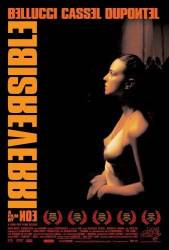
Question: What is the meaning of the flashing lights at the end of the movie (after the camera pans from Alex reading the book at the park)?
Chosen answer: The flashing lights are to create a sense of uneasiness again. Gaspar Noe uses low frequency sound to create nausea, headaches, and disorientation in the beginning and uses it again here to make the viewer feel sick after the mood changes dramatically. Also it symbolizes the chaos that occurs in the universe & how life can easily spiral out of control as it does in the movie.
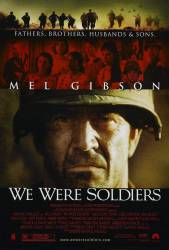
Question: Would a sergeant-major participate in a mission?
Answer: This one did, everything ascribed to him in the film was true.
CSM Plumley's records show that he served in 320th Glider Field Artillery Battalion as a scout. The 320th participated in two glider assaults in the European Theater. Also, Plumley never served in Korea during the Korean War, so he couldn't have participated in one of the two combat jumps of that conflict. His record book indicates he was at Ft. Campbell, Kentucky (1951 to early 1953) when he received orders to Germany. Finally, he never claimed to have made any combat jumps in his career.

Question: Does Pakia die?
Answer: No, she doesn't die. Summary from Wikipedia: Paikia climbs onto the back of the largest whale and coaxes it to re-enter the ocean. The whale leads the whale pod back into the sea; Paikia submerges completely underwater before being thrown off the whale's back by the tide. The spectators fear she has drowned. When Paikia is found alive and brought to the hospital, her grandfather, Koro, declares her the new tribal chief. At the end, Paikia and her family are on the beach, watching the completed canoe being launched into the sea for its maiden voyage.

Question: What's the point of the orange and the marijuana? I didn't quite get that.
Answer: I've been told it's to keep the marijuana moist. The moisture from the orange peel keeps the stuff fresh so that it burns longer. The same happens with an apple peel.
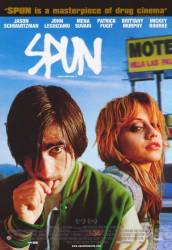
Question: How old are the characters in the film?
Answer: They never mention age, as far as I can see, and I just watched it recently.
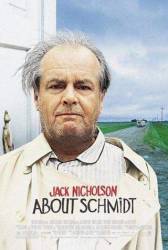
Question: When Randall takes a photo of Warren and Jeannie at the airport after the mother's funeral, what happens to the camera he uses? He seems to put it down on something behind Warren, but then walks past Warren to get his luggage. Warren walks forward toward the gate and isn't seen to pick anything up after saying goodbye. I guess he could have, but wouldn't it have been stolen by then if it was left behind? I didn't see Randall put it in a pocket or bag.
Answer: He could have picked it up. Besides, it may not have been stolen, but picked up by security, or otherwise taken to Lost and Found.

Question: When Bubba told Justine about the bill for the motel, why did he think she would tell Phil about them? They were never at the motel.
Answer: Bubba was afraid that if Phil confronted Justine about the hotel bill that, not only would she confess about her affair with Holden, but that she might also tell Phil about what happened with Bubba.
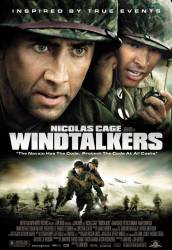
Question: I can understand why they would use code when talking about positions, objectives, etc. but when they call in the air strike from the battleships, what's the point of using code? Also, later in the film, when the same situation arises, they don't use the code. Seemed like it was just a silly way to introduce the whole premise for the movie.
Answer: The point of using the Navajo code to call in air strikes was to encrypt what the Marines were requesting without the Japanese being able to decipher what was said. This is critical because during the Battle of Saipan, the Japanese made extensive use of caves and reinforced earthworks to support their artillery positions and machine gun nests. The delay between requesting artillery support and the act of carrying it out allowed the Japanese to withdraw their infantry to relative safety before the fire mission could commence. By using PVT Yahzee and PVT Whitehouse, they were able to circumvent this and request attacks without the Japanese knowing what was coming. The only time Yahzee does not use the code is when he uses the Japanese radio to call off the artillery strikes that were falling short and hitting Marines. This situation required immediate attention and it would not have been appropriate to use the code.
Answer: They used the code to call in the strike so the Germans couldn't get the U.S. to bomb their own troops. I don't know why it wasn't used in the other situation.
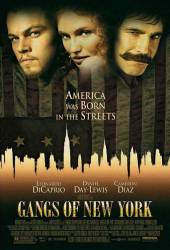
Question: Can someone please explain to me why the audience and Amsterdam are supposed to hate Butcher so much and think he's a loathesome person? He killed Vallon during a fight, fair and square, and was nothing but respectful to his dead enemy. He almost seemed to have regretted killing Vallon. He didn't act like a worse scum than anyone else until quite a while into the film.
Answer: Well, rather obviously, Amsterdam hates him because he killed his father. I mean, wouldn't you? It hardly matters that the fight was fair and that Bill showed respect about it, Amsterdam's not exactly likely to turn round, say "oh, that's alright then" and walk away. William Cutting (or William Poole, as he was in reality) was a ruthless, vicious man, who pretty much stopped at nothing to cement his control of the area. Whether he was actually worse than many of the others is questionable, but the film is based on Amsterdam's view of things - in that view, Bill is the enemy and we're supposed to see him as such.
Answer: Because he's very racist. That's why the audience hates him. He's very racist.
Answer: Because he was a racist? Secondarily while others might have acted that badly in his situation he was the one with the power and therefore the one holding a city hostage.
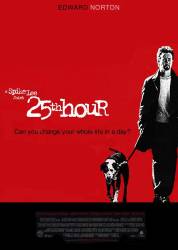
Question: Wasn't the plan that Monty's father thought about actually bad, at the end? I mean, even if Monty started a new life far from New York and his friends and family and never got recognized, his father would be arrested when coming back to New York. Suddenly him and his father disappear and later on his father gets back to New York, a little bit suspect no?
Answer: Monty's father was suggesting they go into hiding together. He was not suggesting that he would take Monty out west and return to New York himself.

Question: This may sound like a silly question, but who are the pirates who don't do anything?
Answer: Exactly what they call themselves. Pirates who don't do anything, they just stay home and lay around. It's from a veggie tales silly song from an older release.
Would they be genuine pirates if they didn't do anything? A pirate is basically a person who attacks, and robs ships at sea.
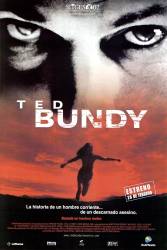
Question: How did Ted Bundy manage to fool law enforcement, and evade them for years before finally being arrested?
Answer: I don't think he fooled police. He was clever and able to commit murders without leaving enough evidence to directly tie him to the crime. Eventually there was enough physical as well as circumstantial and eye witness accounts to convict him. He evaded police for stretches of time by flying under the radar and carefully calculating his moves. Weird writing about this as he terrorized my city.

Question: Excluding plot device, when Lanie goes to see Prophet Jack a second time, why didn't she simply ask him how she was going to die?
Answer: Yes, and it's by Nicholas Sparks.
J I Cohen